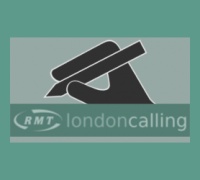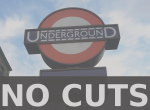Tube Lines, whose late completion of upgrade work on the Jubilee Line has resulted in numerous weekend closures, has had a claim for £327m in compensation to complete the work rejected by an independent adjudicator. Tube Lines attempted to claim the money from London Underground. It felt LU was to blame for the work not being completed on time as access to the track was not sufficient.
The consortium had wanted TfL to pay the money as the delays had caused an increase in its costs. The adjudicator, a QC, ruled that TfL had not breached its contract and was therefore not responsible for the cost. The works are now expected to be completed ten months late.
In the recent PPP arbiter's report , there was a disparity of some £1.75bn between what Tube Lines believed its costs would be for the next 7 1/2 years and what TfL believed its spending should be. Tube Lines submitted costs of £5.75 billion, whilst TfL claimed costs should be £4bn. That's a difference of 23%: the public sector submitting a cost for works which is nearly a fifth less than that of a private company. The arbiter decided funds should be £4.4bn - still far nearer TfL's claim than that of Tube Lines.
Tube Lines had hoped to fill that funding gap with compensation claims from LU - of which it had £500M worth including the £327M it has now been denied. As the delays on the Jubilee Line aren't deemed to be LU's fault, this perhaps doesn't look good for Tube Lines argument that the Jubilee Line upgrade is running late because LU won't give them track access.
PPP was set up with the belief that by introducing market forces, efficiency would improve and in turn would reduce costs. That clearly hasn't been the case. Metronet has gone bust and Tube Lines' costs are much greater than envisaged.
The Jubilee Line Upgrade project is one of the areas where Tube Lines has come under a lot of criticism. The PPP arbiter's assessment was that "Tube Lines had made major mistakes in the Jubilee line upgrade project, had overpaid its own shareholders, and had not acted as an efficient Infraco should."
There has been further wide spread criticism of Tube Lines. Boris Johnson wrote recently to Dean Finch, chairman of Tube Lines, citing unfulfilled promises of Jubilee work being completed and his "Understand[ing] that the programme situation has worsened considerably."
The former head of TfL, Tim O'Toole, has consistently blamed PPP for delays and additional costs. "The premiums to be paid in these areas are a result of the PPP structure," O'Toole said back in 2008, when Tube Lines first submitted its claim for £7.2bn. And, as far back as 2005 he said Tubelines were "earning significant sums of money ... which are not consistent with the improvements being delivered" and that "We are paying a premium price for improvements but the performance to date has not been good enough."
Tube Lines commissioned its own report into the late works on the Jubilee Line. The report recommends that Tube Lines needs "to strengthen product management of software production," reorganise its chain of command, and puts blame on the delays with Thales for not understanding fully what would be required of it.
Surely, as it was Tube Lines who employed Thales, Tube Lines should be responsible for ensuring the contractor is up to the job? Both this report, and the PPP arbiter's, also lays blame with LU for restricting access to engineers. This arguement now looks weak given that the £327M compensation claim has been rejected. Besides, given the delays, can LU really be blamed for not wanting to further inconvenience passengers?
While London commuters and visitors, and the British economy, continue to suffer, the PPP investors will move on to the next taxpayer-funded money pump: when Metronet failed, a Labour government soon gave lead members of that private consortium £5bn to widen the M25.
- Peter's blog
- 3815 reads





